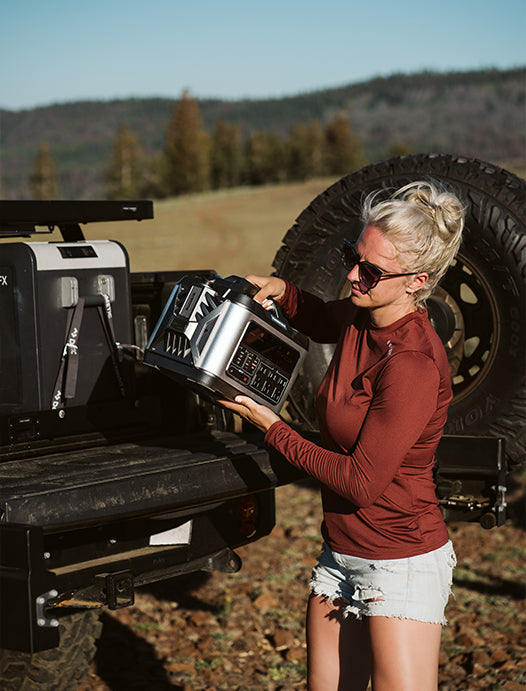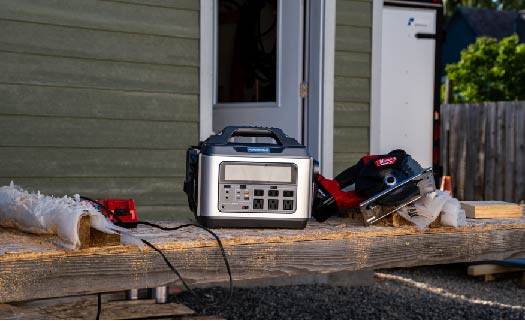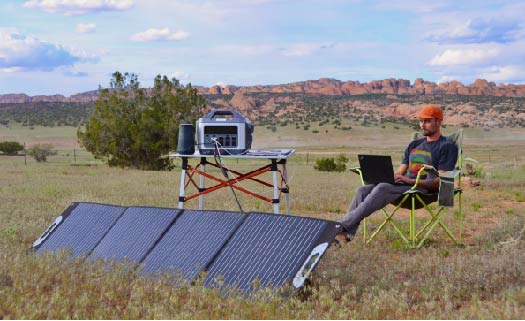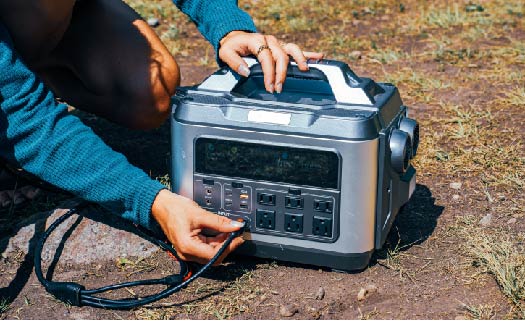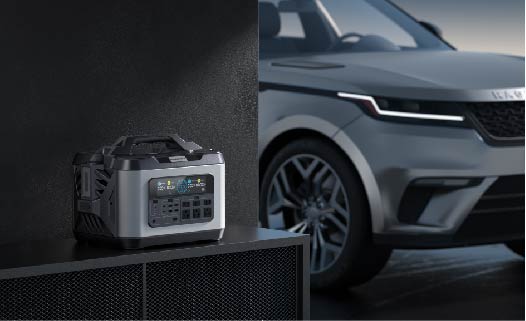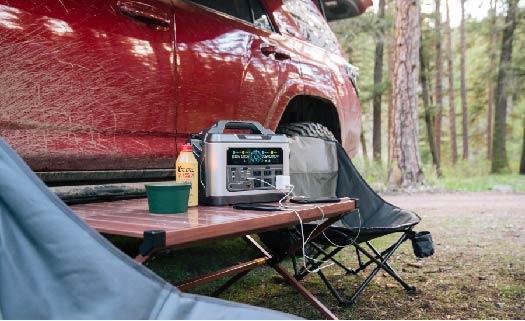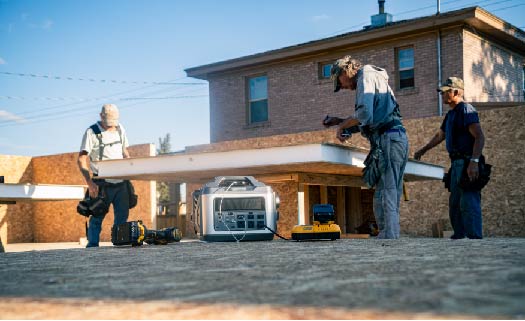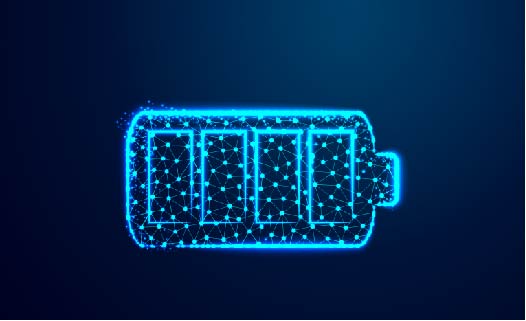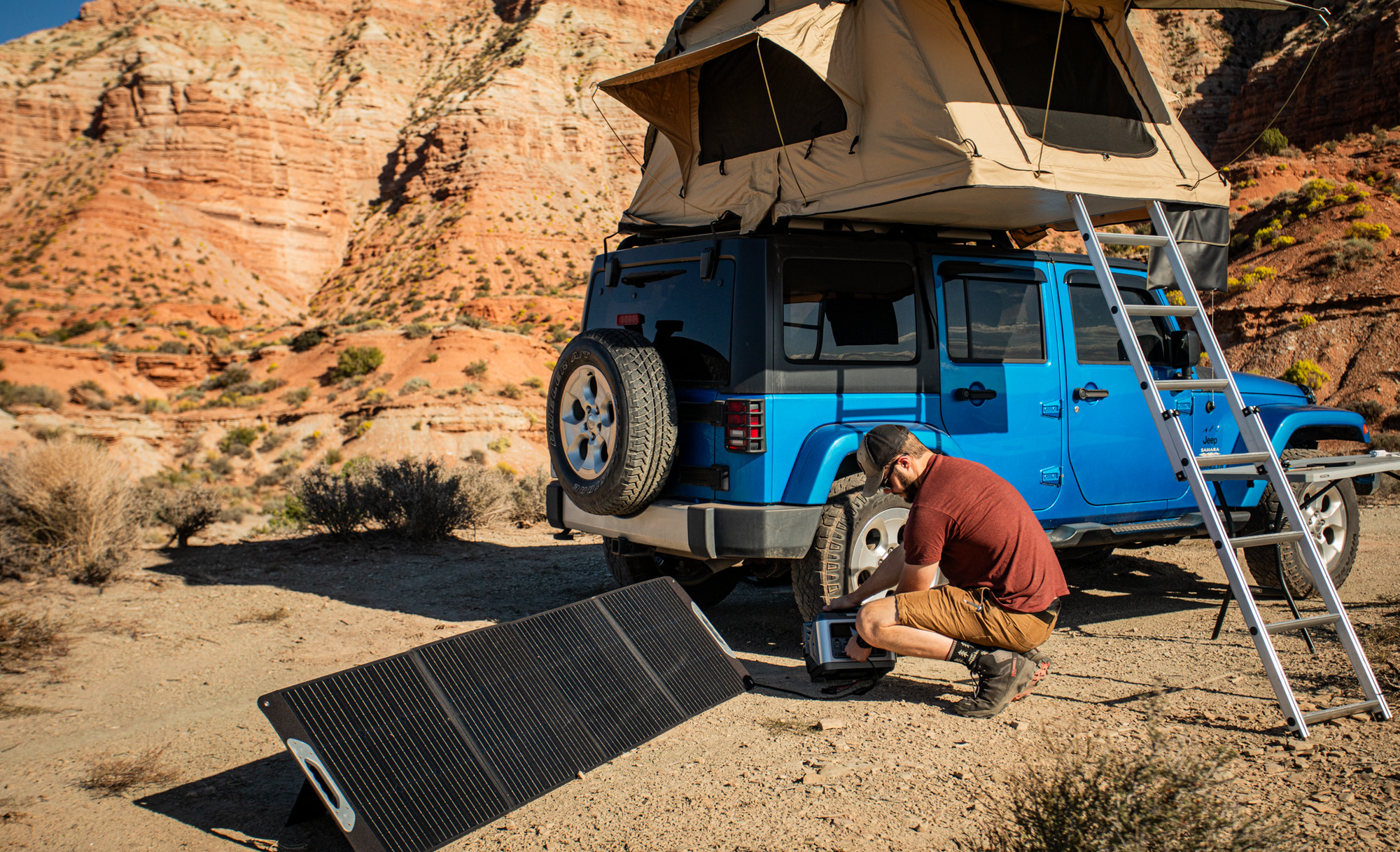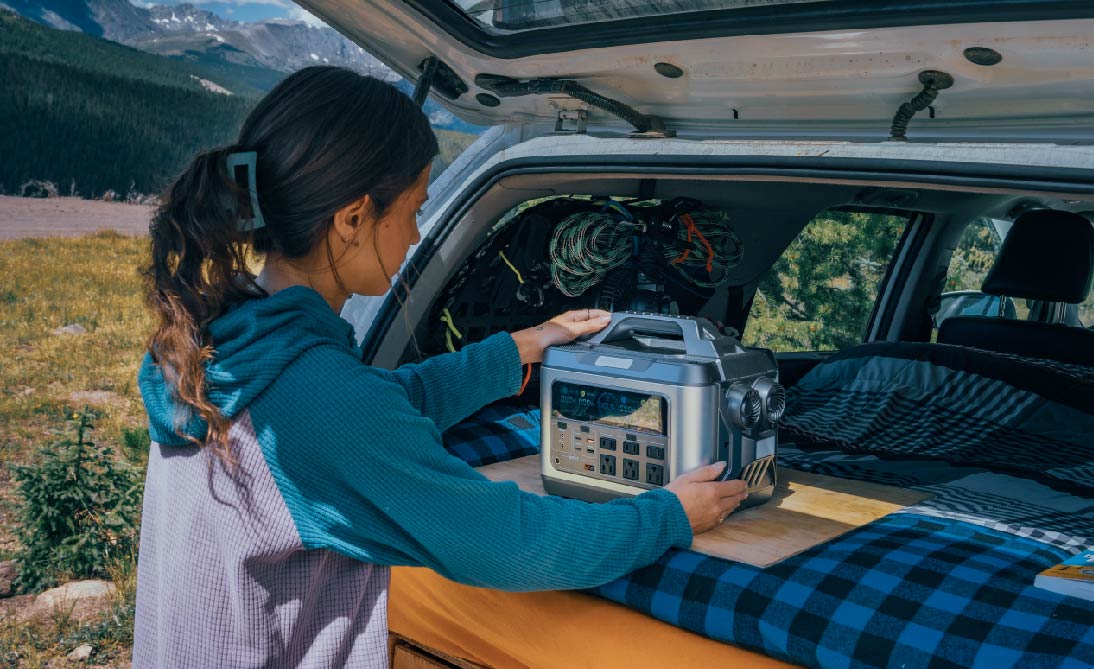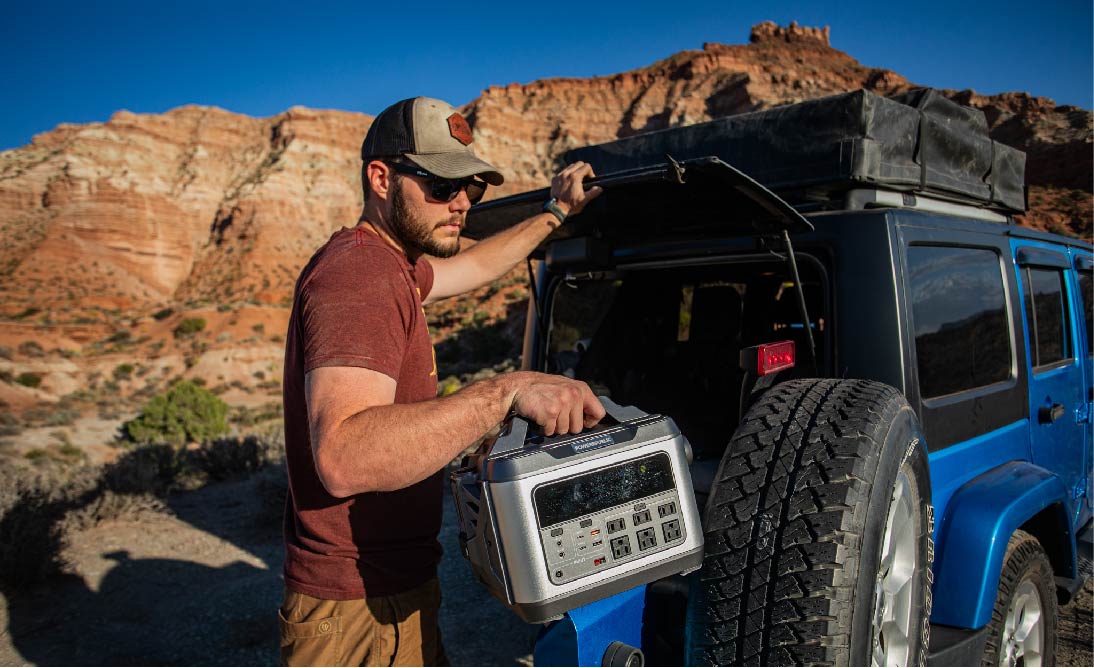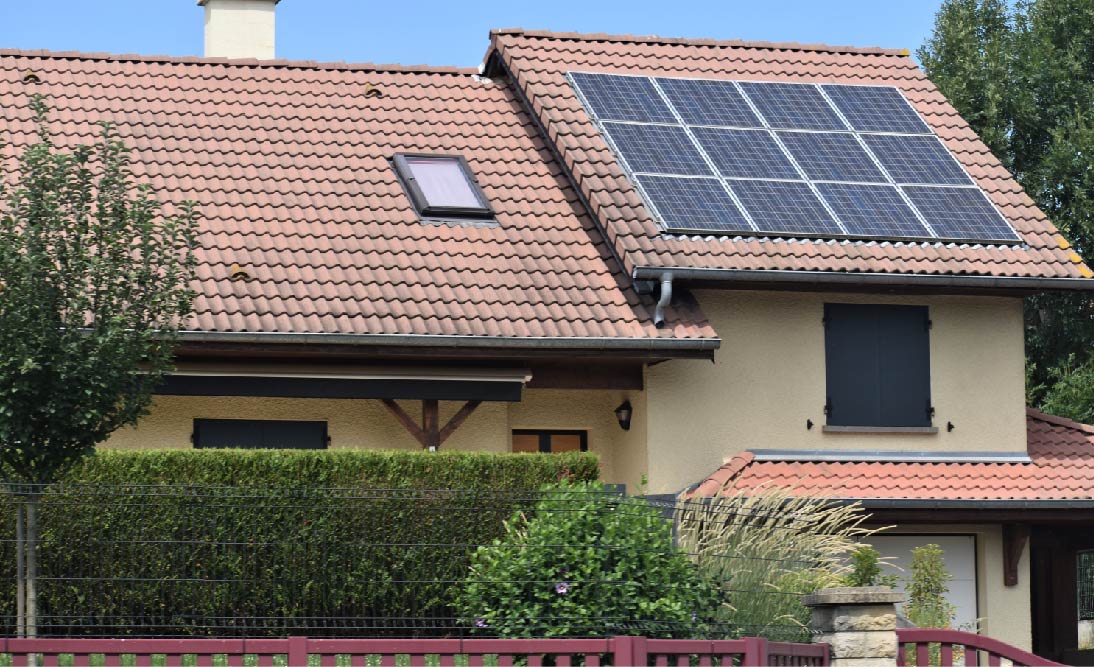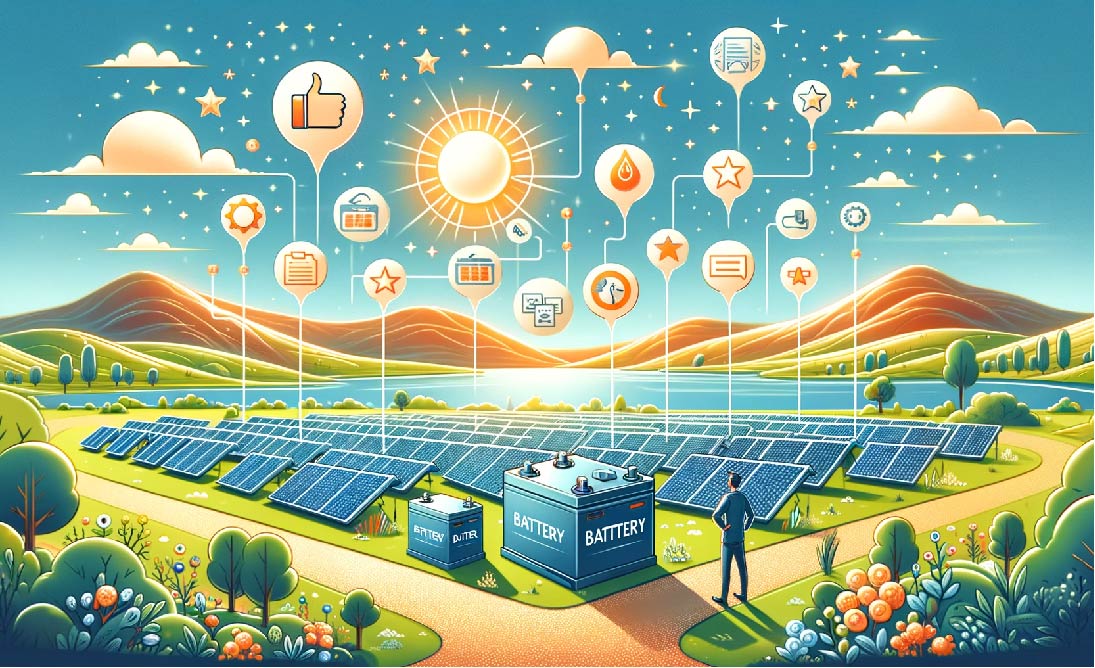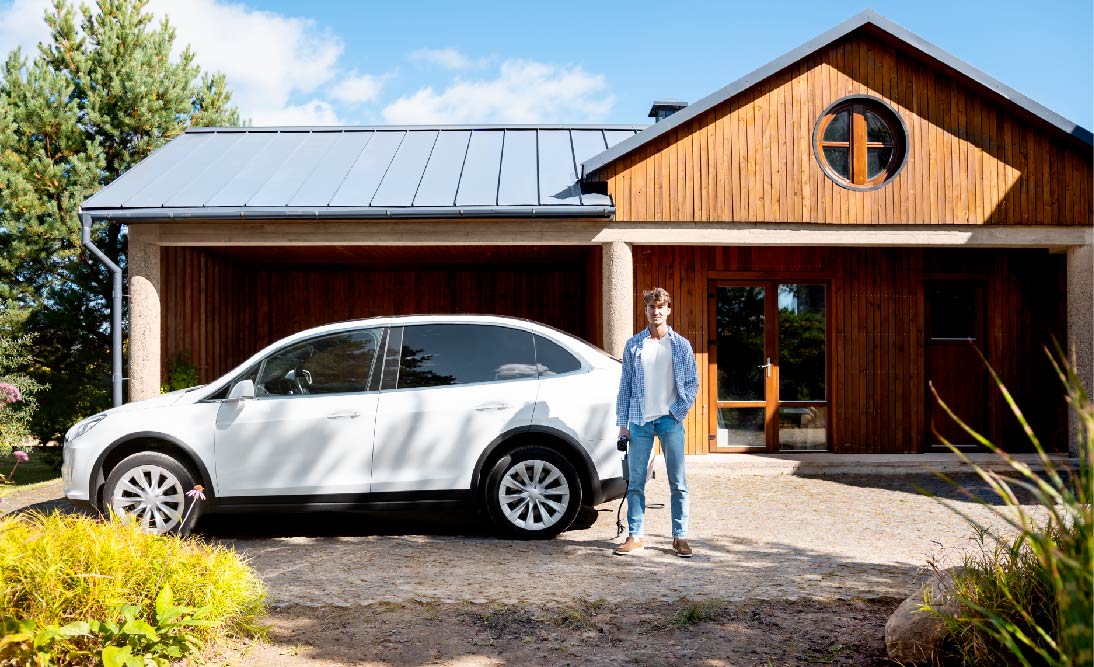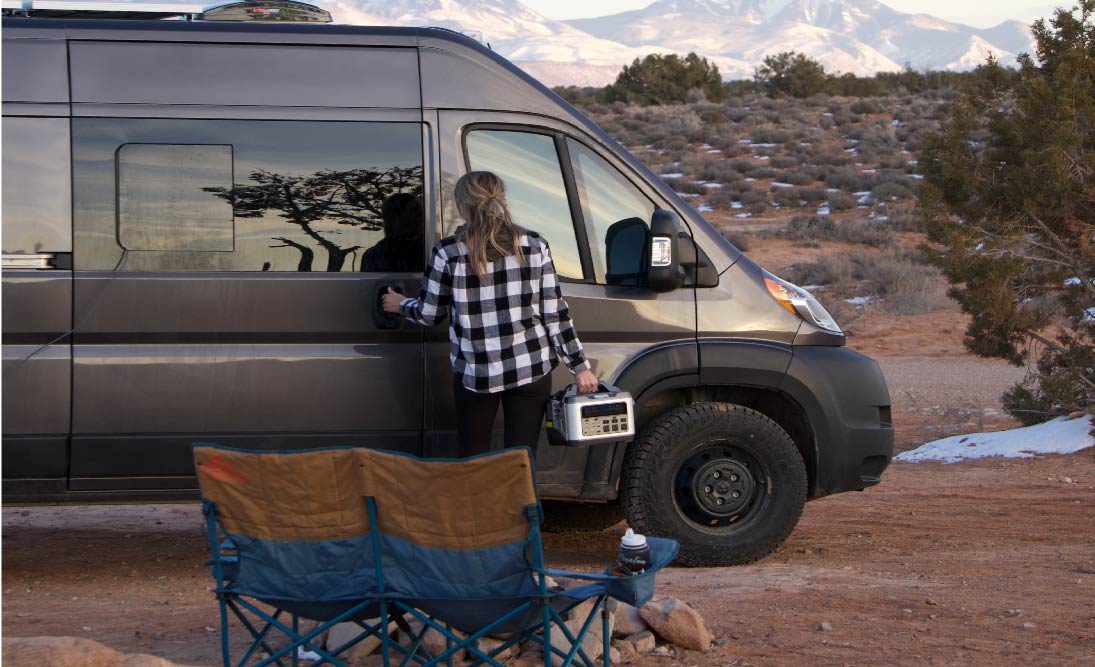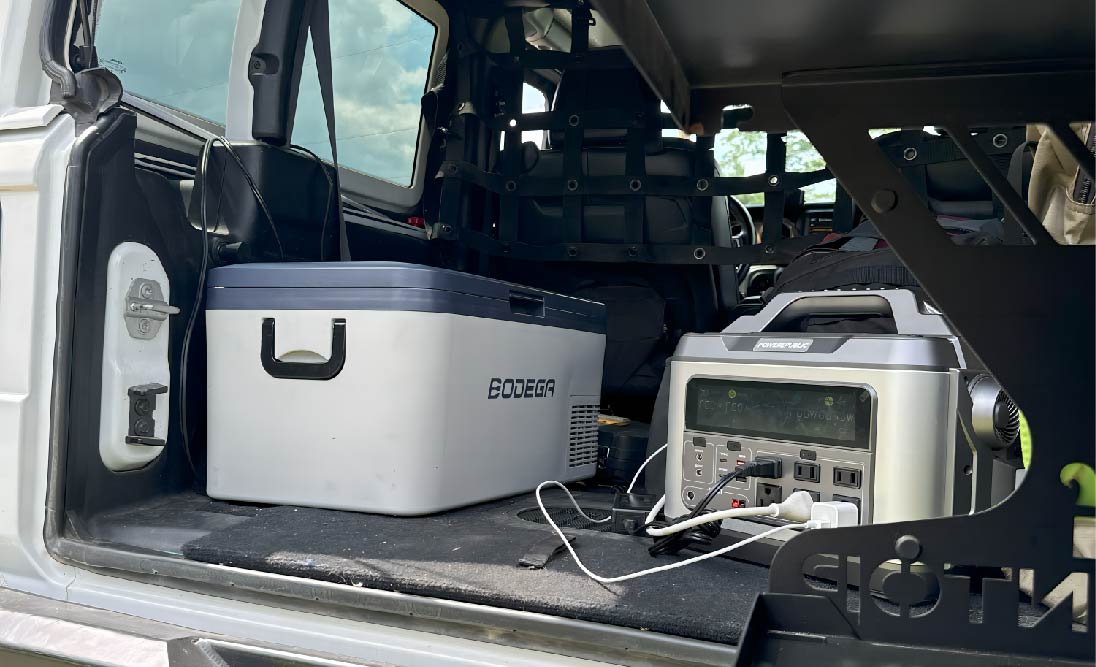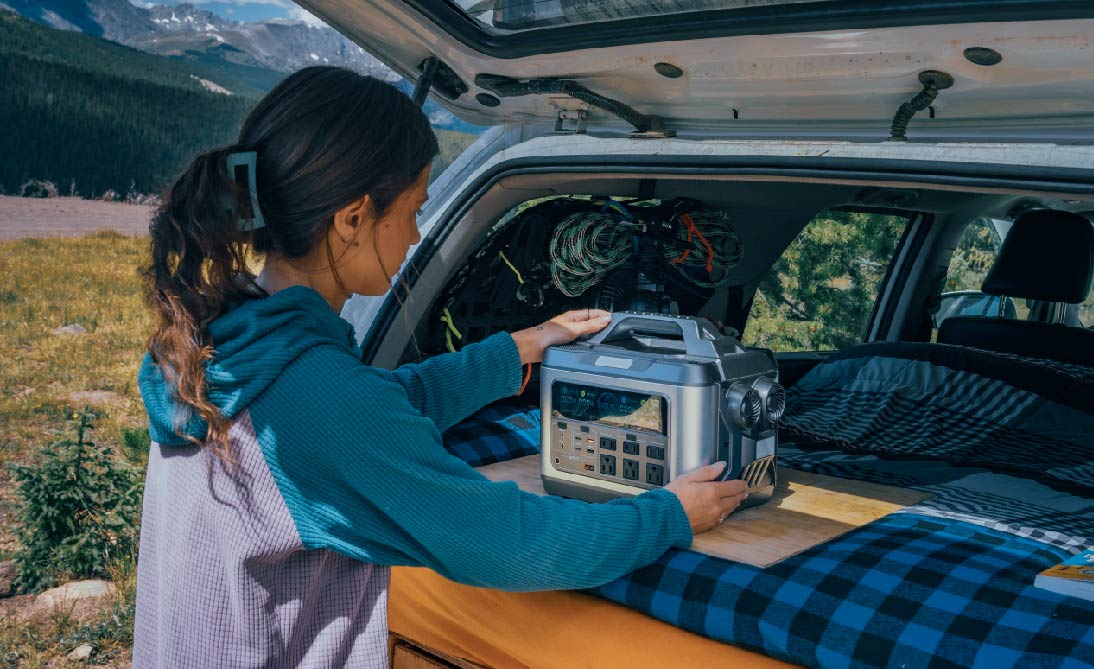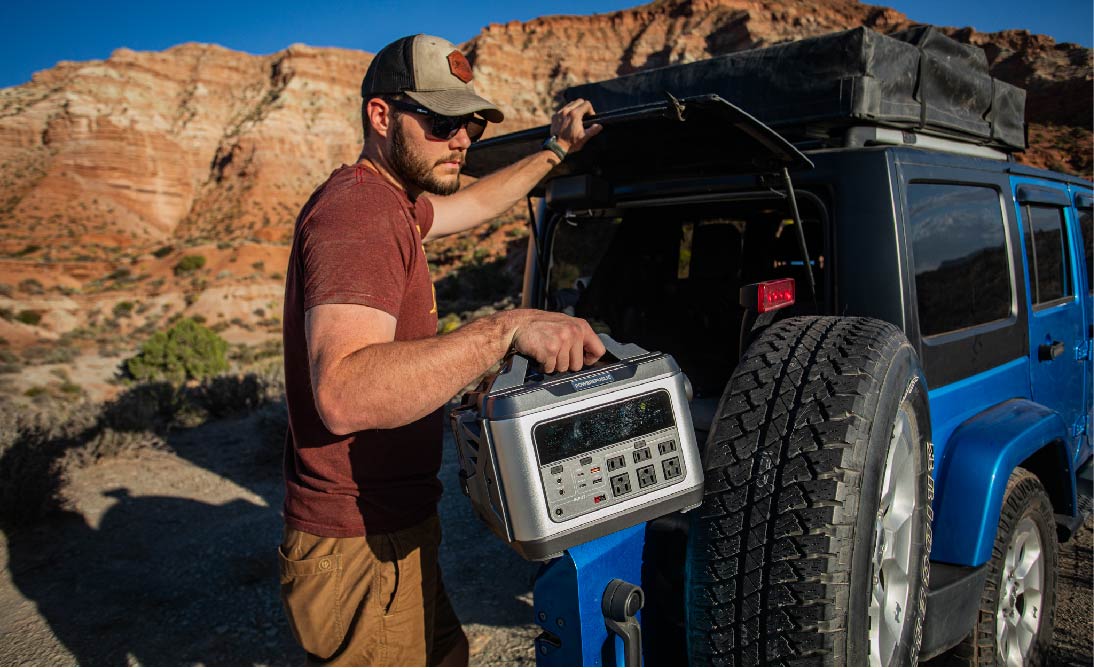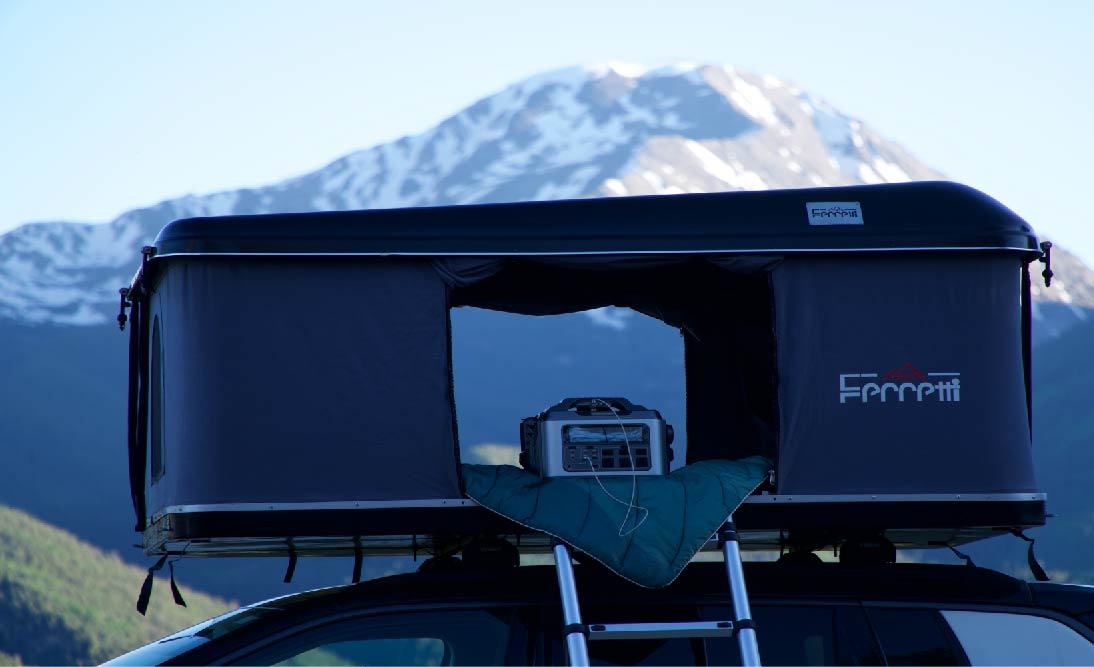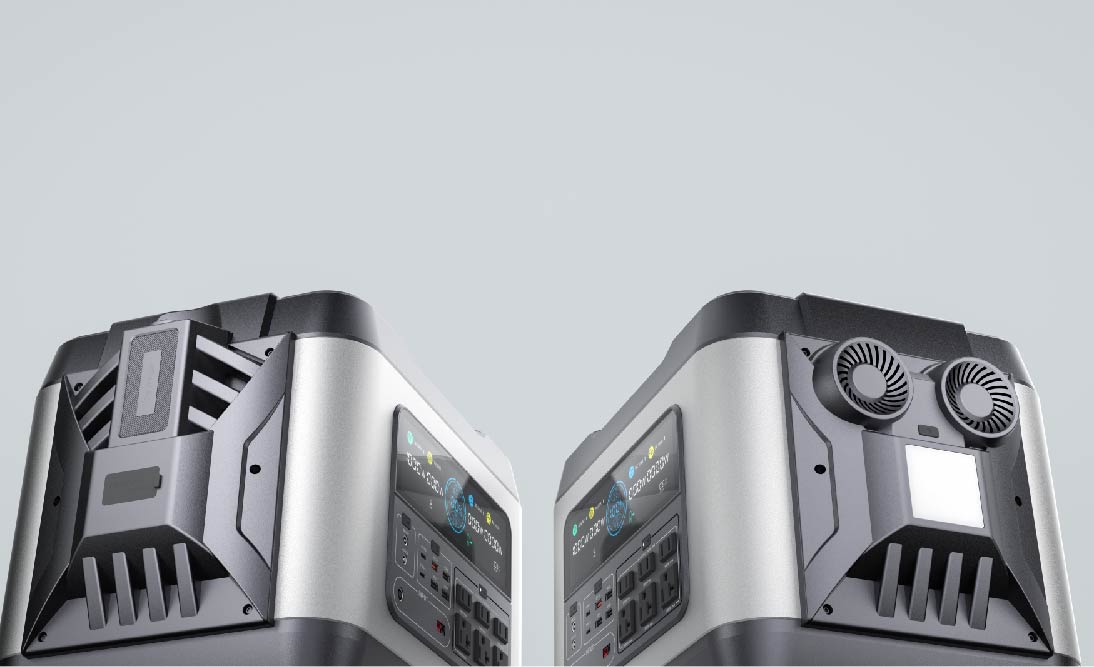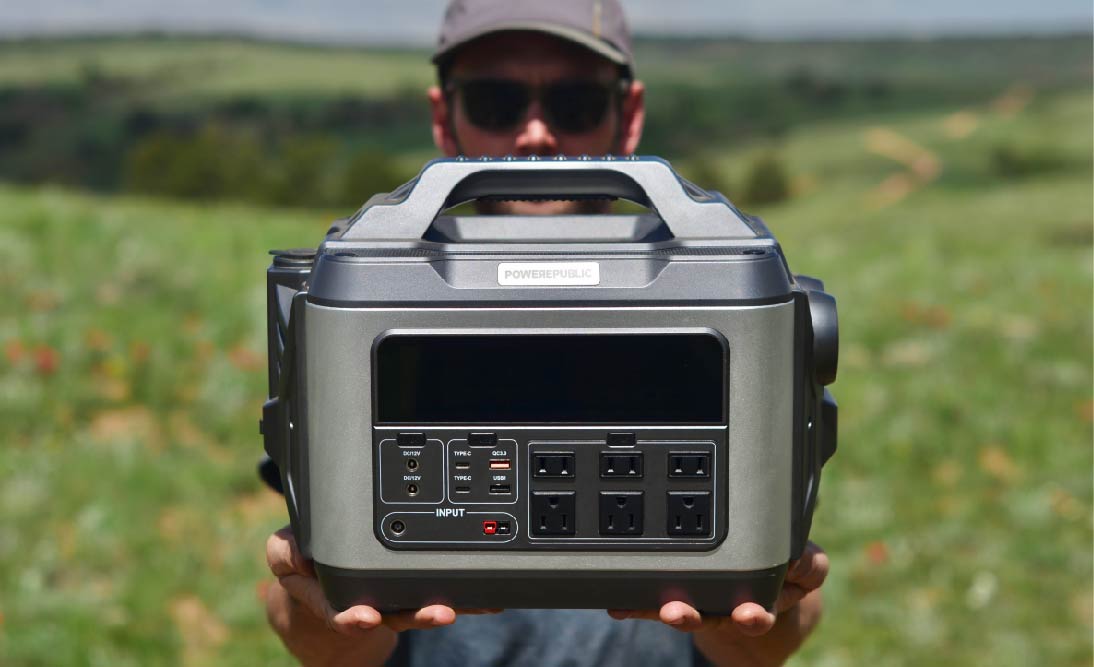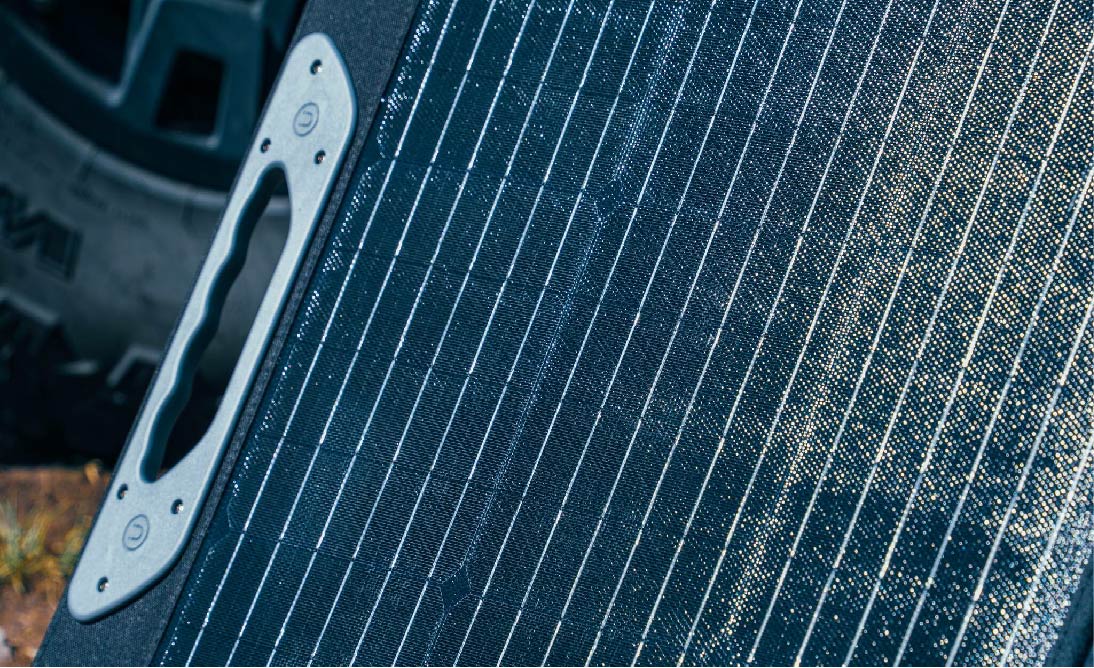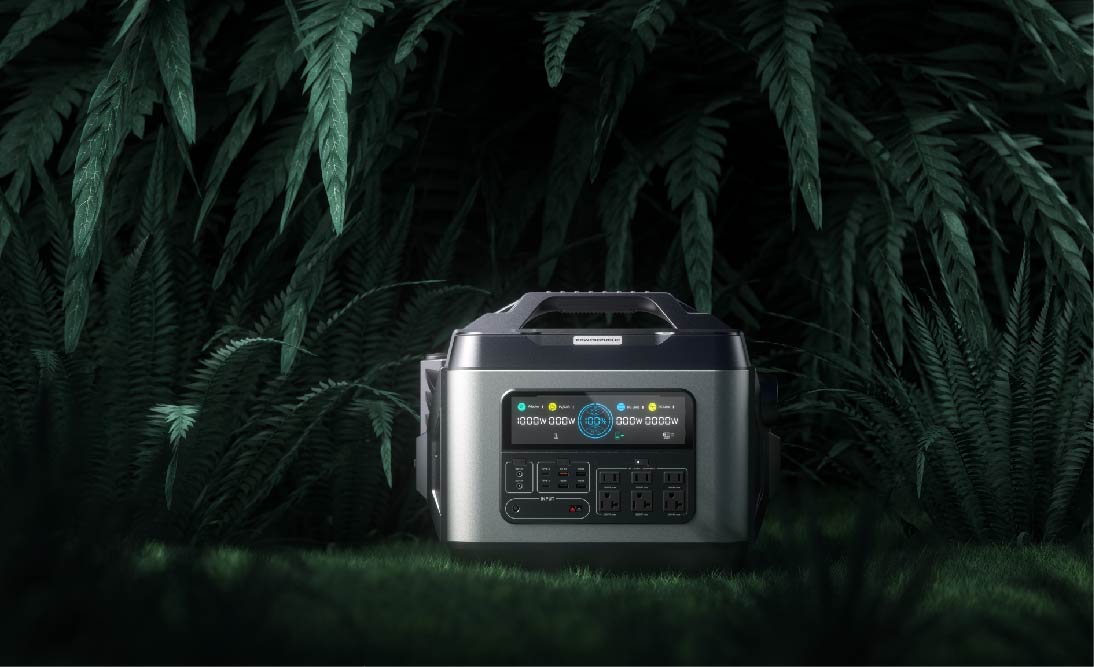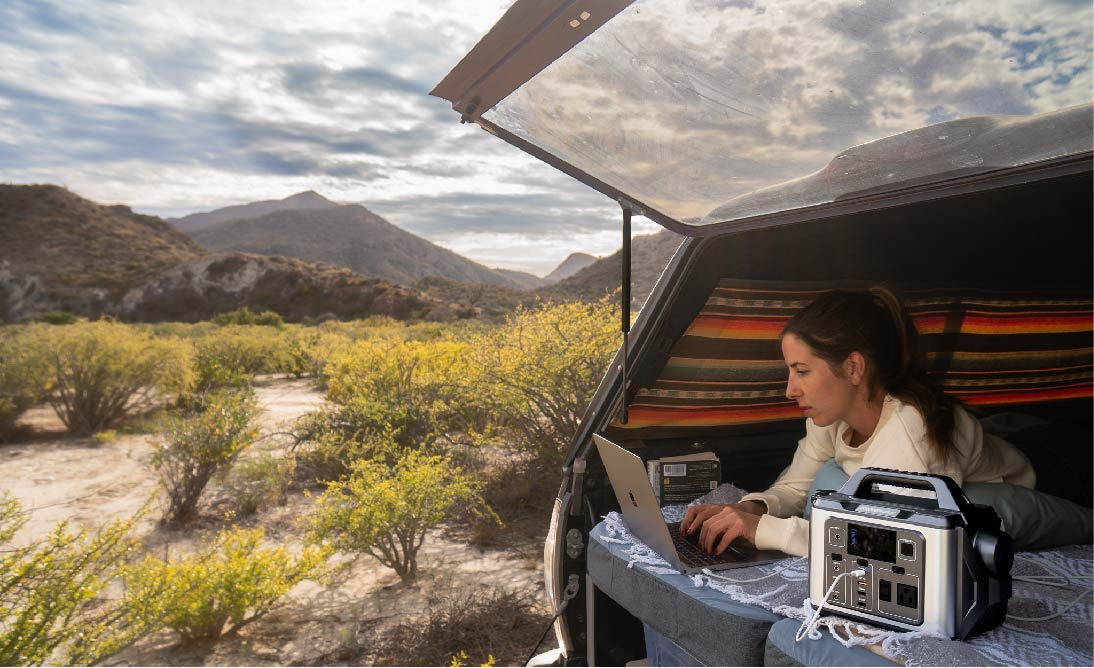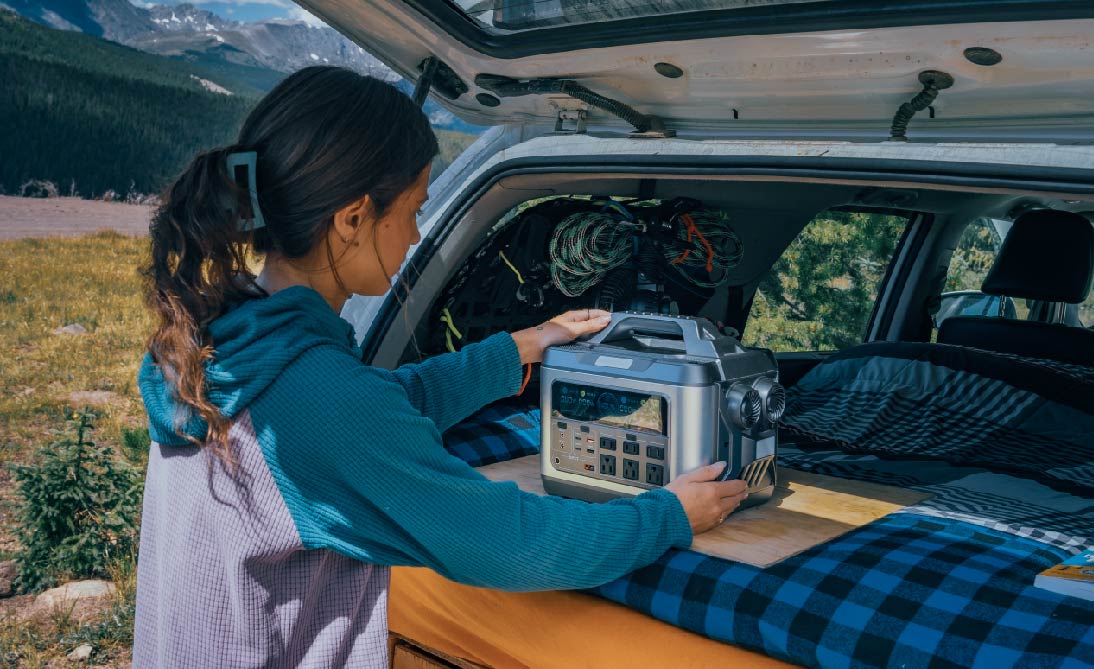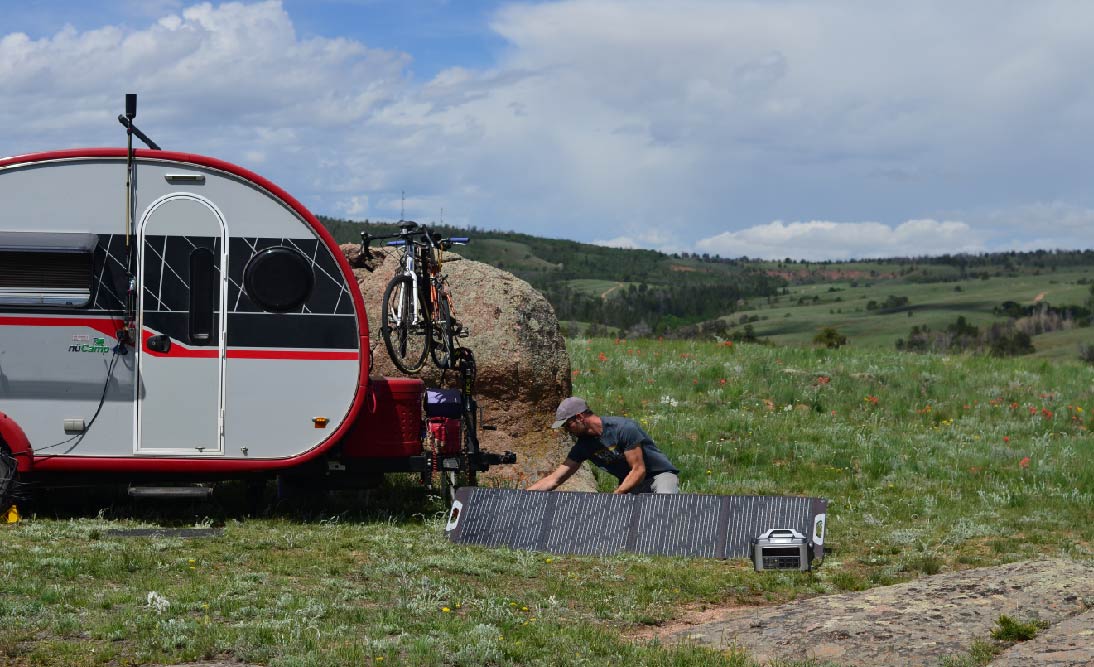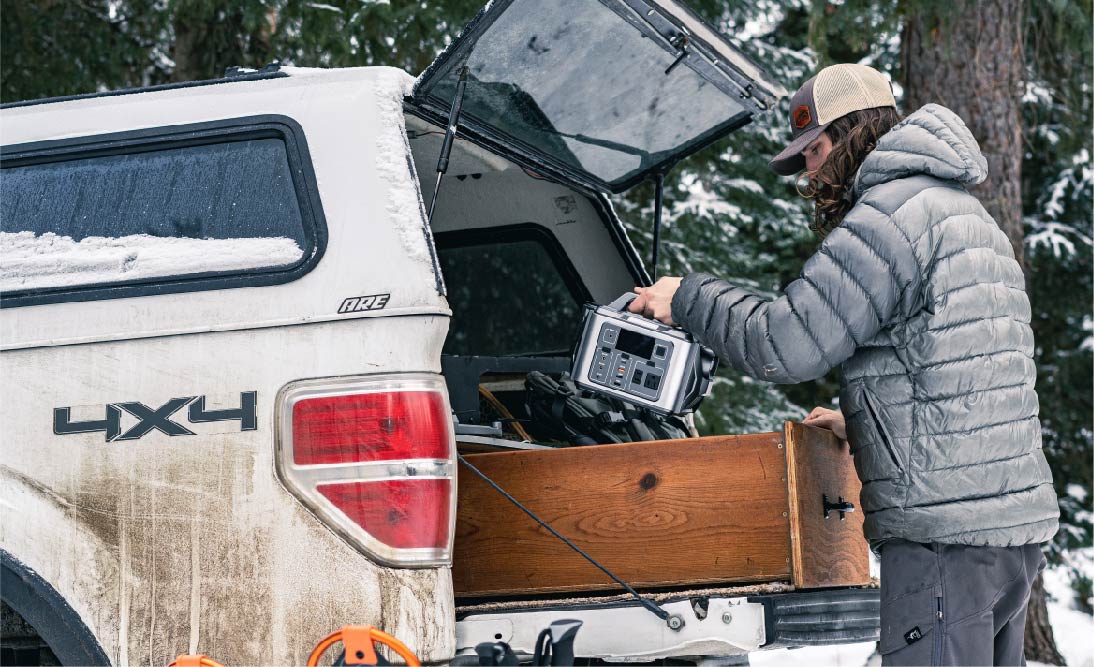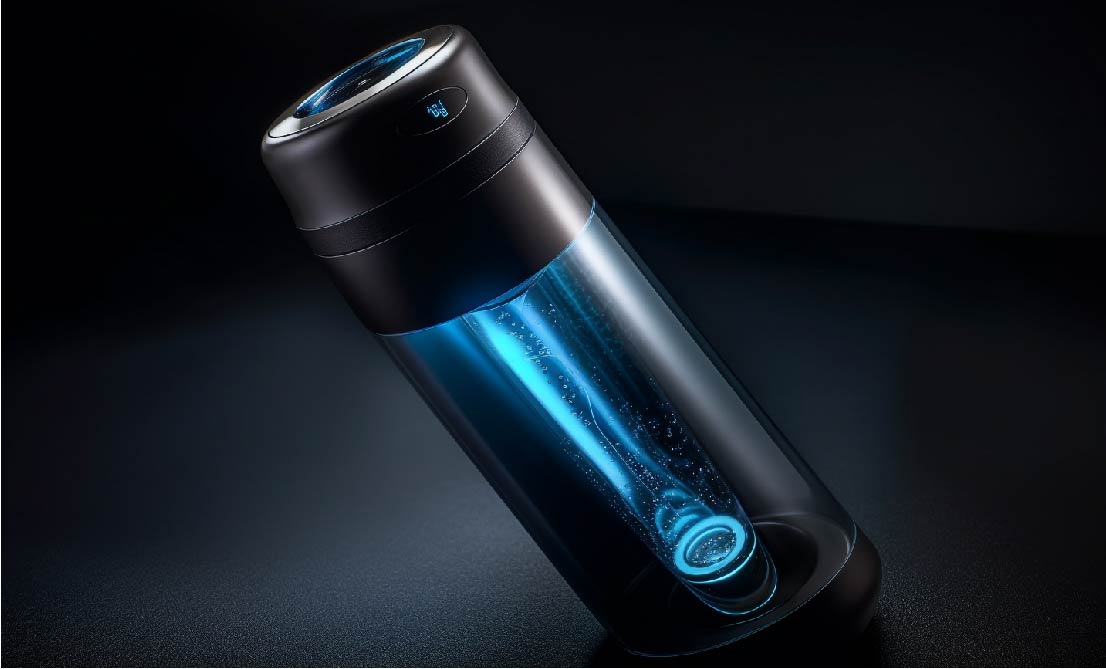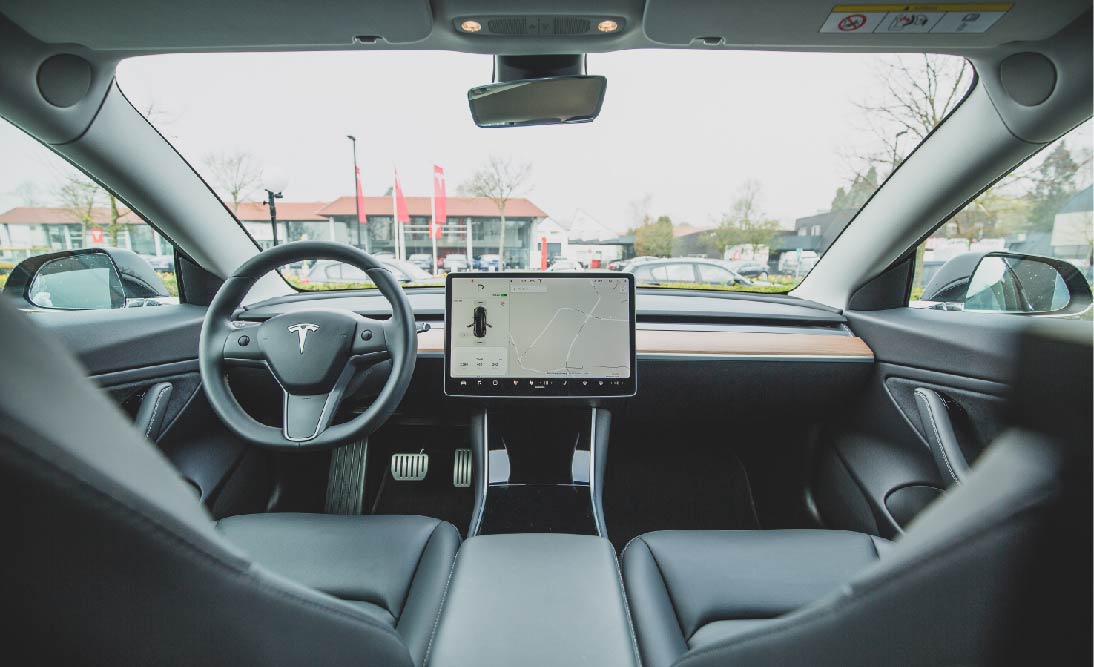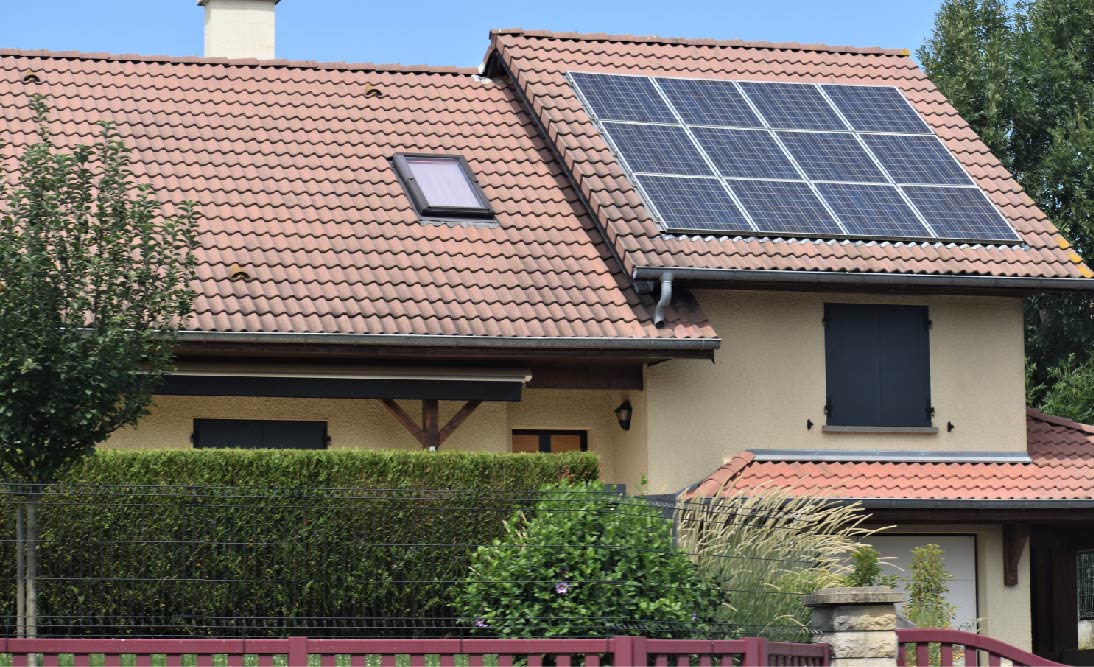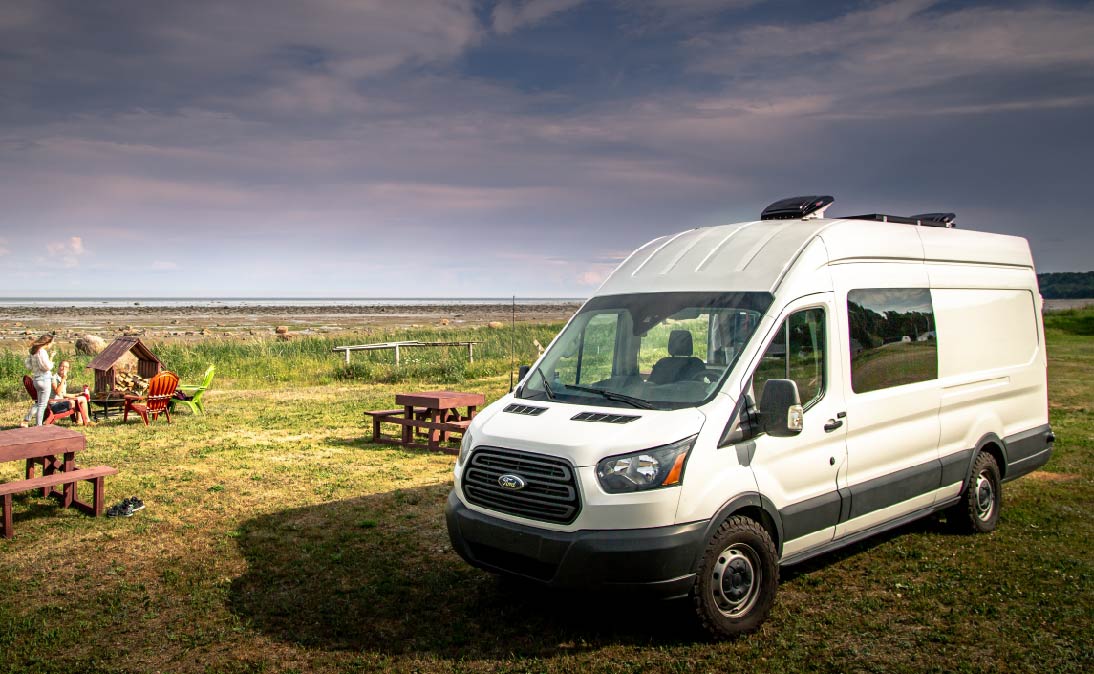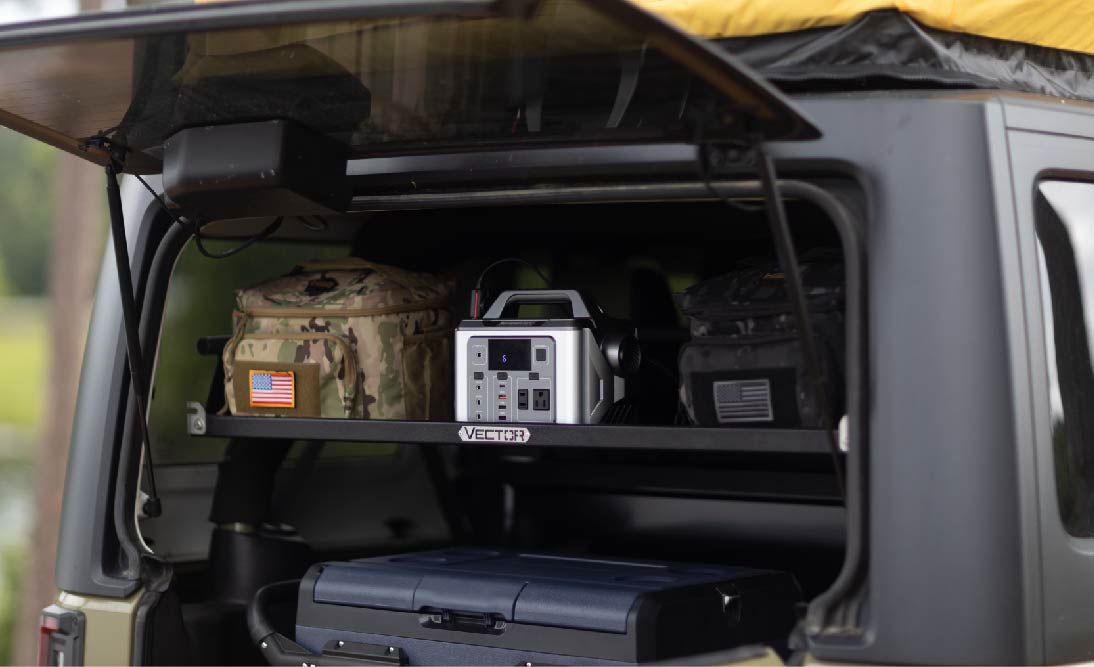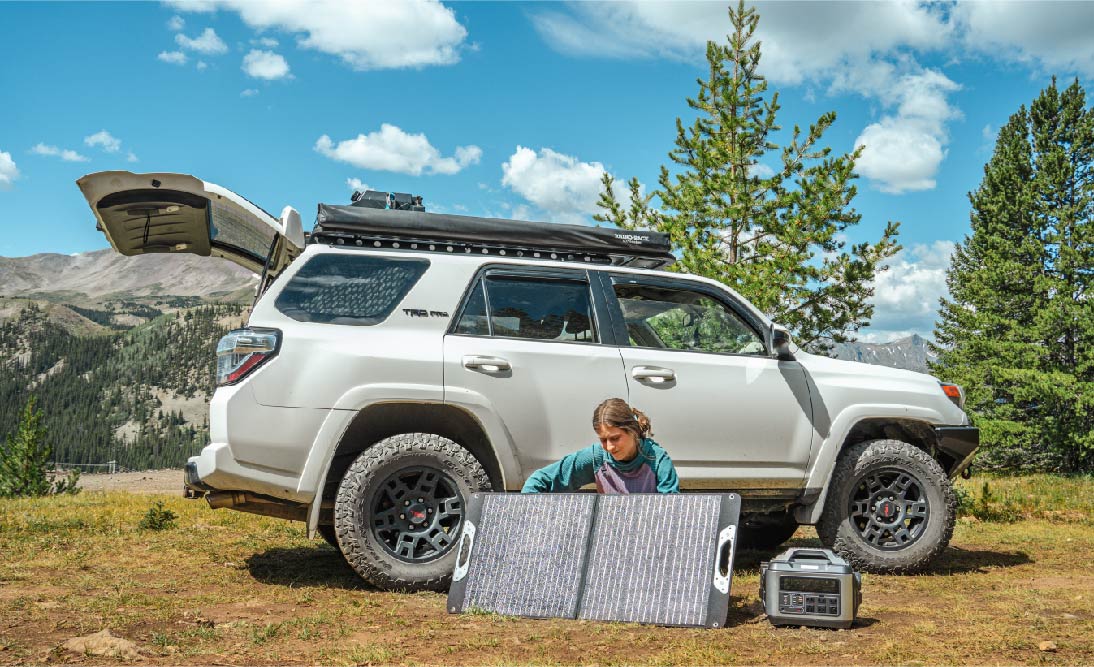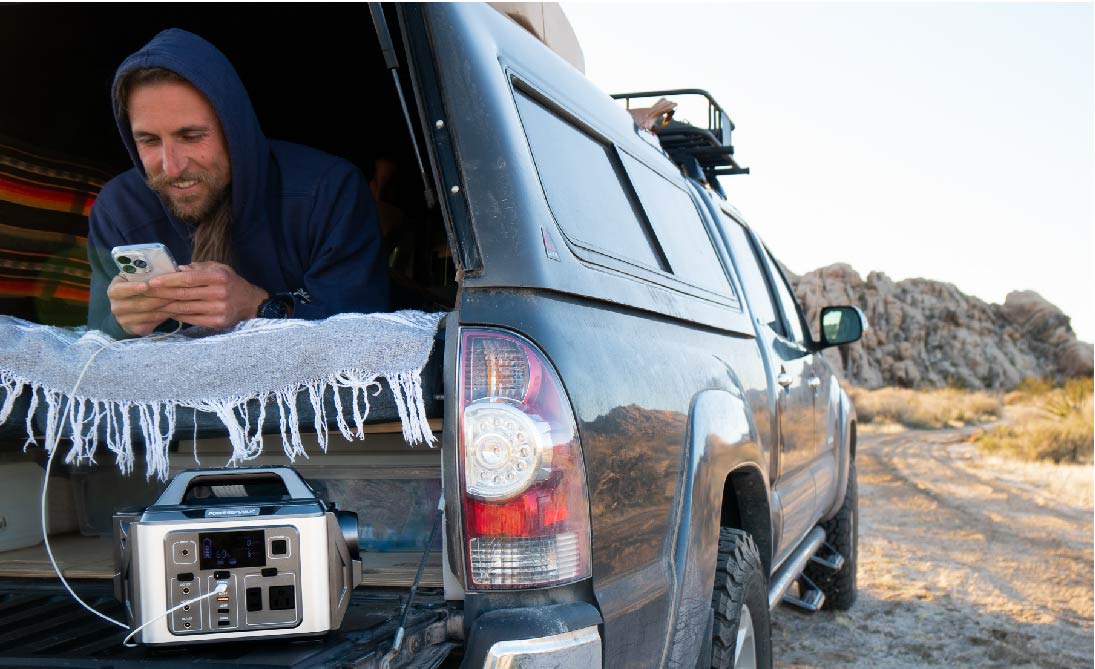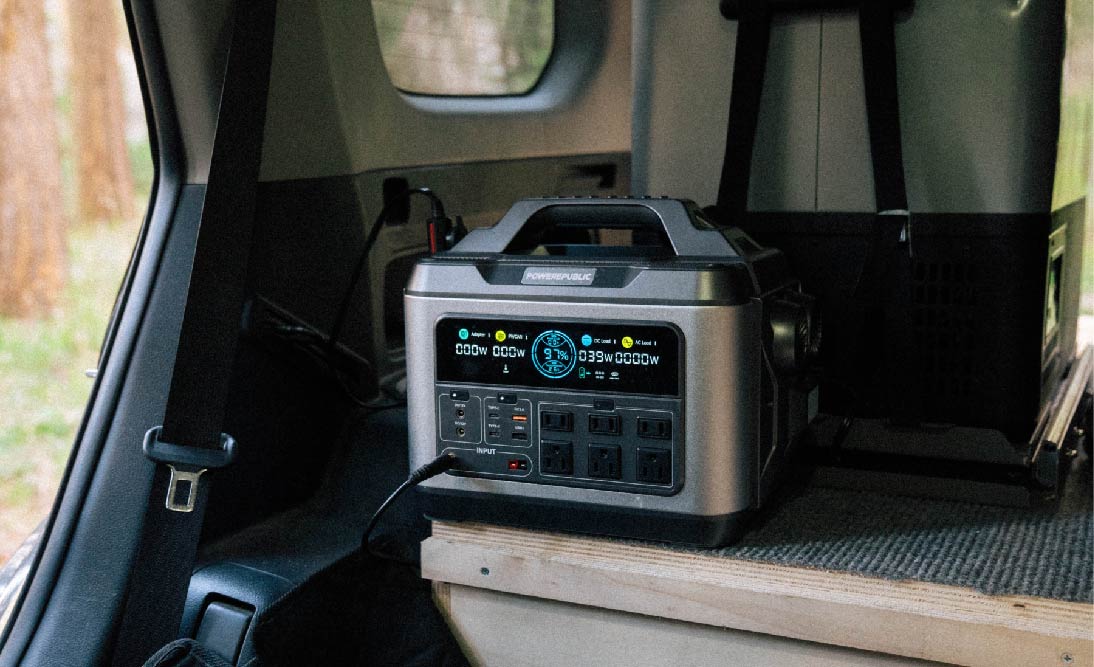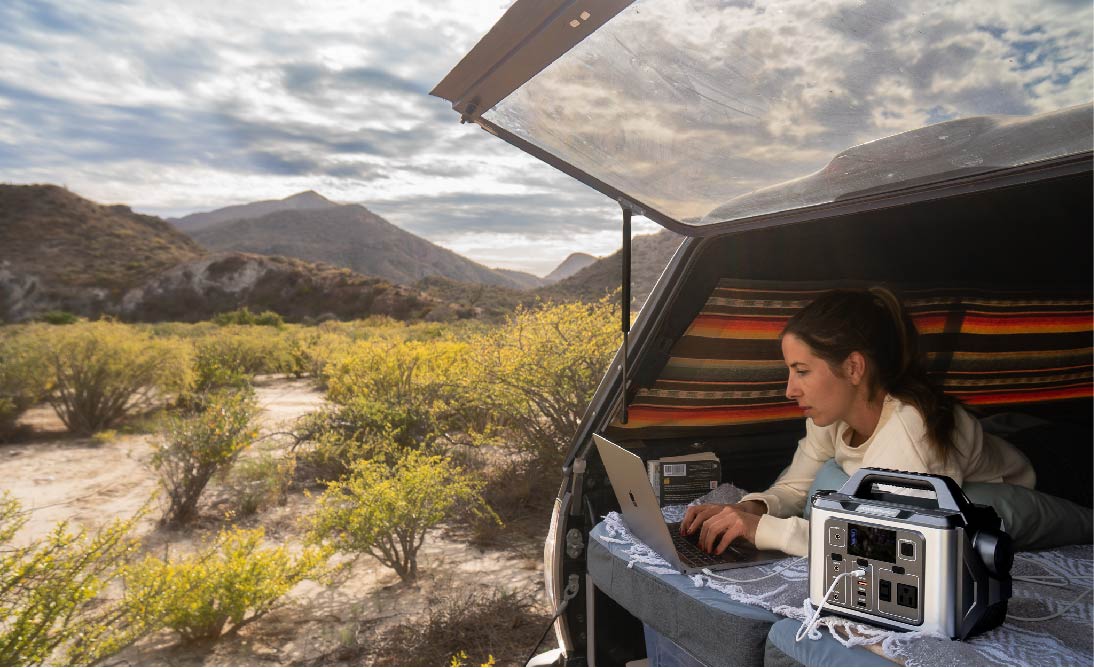With renewable energy gaining popularity, lots of people are turning to portable solar panels. These are a hit with outdoor lovers, campers, and anyone who wants eco-friendly power. But here's the deal: to make the most of these solar panels, you need to know about the cords and connectors they use. Different cords do different jobs.
In this article, we'll look at three common cords: Anderson cords, DC cords, and MC4 connectors. These cords are key to linking your solar panels to various gadgets. They give you a flexible and reliable way to get energy. So, let's dive in and learn all about them!
Anderson Cords
Anderson cords are a type of connector commonly used in the field of solar power systems. They usually come in red-black. These connectors consist of two primary components: a housing and two power pins. If you see a red-black port on a portable power station, that’s the Anderson port for solar charging.
Anderson connectors are known for their versatility, durability, and ease of use. They offer a reliable connection for both low-voltage and high-current applications. These cords are particularly useful in portable solar panel setups due to their ability to handle high-power outputs efficiently.

Features and Benefits
Anderson cords are widely used in portable solar panels due to their specific features and associated benefits. Here are some key features and benefits of Anderson cords:
-
High Current Capacity: Anderson cords are designed to handle high currents, typically ranging from 30 to 120 amps, depending on the specific model. This high current capacity makes them suitable for connecting portable solar panels.
-
Reliable and Secure Connection: Anderson cords utilize a robust and secure connection mechanism. They employ a design with two connectors that can be easily joined together, eliminating the need for separate male and female plugs. This design reduces the risk of accidental disconnections.
-
Quick and Easy Assembly: They typically consist of two components: the housing and the terminals. The terminals can be crimped onto the cable ends, and the housing securely holds the terminals in place, creating a complete connector.
-
Durable Construction: Anderson cords are built to withstand rugged and harsh conditions. They are often constructed with tough polycarbonate or durable thermoplastic, which offers resistance to impact, UV radiation, and extreme temperatures.
-
Versatility and Compatibility: Anderson cords are designed to be compatible with a wide range of devices such as portable solar panels, portable power stations, batteries, power inverters, charge controllers, etc. They are commonly used in off-grid solar power systems, recreational vehicles (RVs), marine applications, and other portable energy setups.
-
Modular and Expandable: Anderson cords allow for modular system design and easy expansion. By using multiple Anderson cord connectors and extensions, you can create custom cable lengths or connect multiple solar panels in series or parallel configurations, depending on your power requirements.
Overall, Anderson cords provide a reliable, secure, and efficient solution for connecting portable solar panels to portable power stations. Their high current capacity, durability, compatibility, and safety features make them a popular choice among users in the portable solar energy domain.
Common Applications:
-
Portable Solar Power Systems: They provide a secure and efficient connection between solar panels, charge controllers, batteries, and inverters. These cords enable easy setup in off-grid or remote locations.
-
Recreational Vehicles (RVs): Anderson cords are employed to connect the solar panels to the RV's battery bank, allowing for efficient power transfer and charging while on the move or during camping trips.
-
Marine and Boating: They are used to establish connections between solar panels, batteries, and electrical systems on boats and yachts to ensure the efficient utilization of solar power for onboard equipment and navigation systems.
-
Off-Grid Power Systems: Anderson cords are commonly utilized in off-grid power systems. These cords enable the connection of solar panels to batteries or power inverters, providing a sustainable and independent power source in areas without access to the electrical grid.
-
Electric Vehicle (EV) Charging: They can serve as an adapter or extension cord to connect the EV charging station or the vehicle's charging cable to a power source.
-
Industrial Applications: They are used to connect power supply units, control panels, battery banks, and other electrical components. The high current capacity and secure connection of Anderson cords make them suitable for heavy-duty applications in industries such as manufacturing, construction, and logistics.
DC Cords
DC cords, also known as Direct Current cords, are an important component in portable solar panels. These cords enable the efficient transmission of power from solar panels to various devices, including batteries, appliances, and charge controllers. They typically feature two types of connectors: male and female plugs, allowing for easy connection and disconnection.

Features and Benefits:
-
Plug-and-Play Convenience: DC cords often come with pre-attached connectors, typically equipped with standard plug designs. These connectors allow for easy plug-and-play installation, eliminating the need for complicated wiring or electrical expertise.
-
Weather-Resistant Design: They often incorporate weather-resistant materials, ensuring protection against moisture, sunlight, and temperature variations.
-
Flexible and Lightweight: This characteristic makes them highly portable and easy to handle, enabling convenient transport and setup of solar panel systems in various locations.
-
Low Voltage Drop: High-quality DC cords are designed to minimize voltage drop, ensuring efficient power transmission from the solar panels to the devices. Reduced voltage drop helps maintain optimal power output, particularly over long cable runs, maximizing the performance of the solar panel.
-
Safety Features: Many DC cords come equipped with built-in safety features to prevent electrical hazards and ensure user protection, such as insulation shielding, strain relief, and overcurrent protection.
Common Applications:
DC cords used with portable solar panels have widespread applications in various industries and settings. Some common applications of DC cords for portable solar panels include:
-
Off-Grid Power Systems: They connect portable solar panels to batteries or charge controllers, enabling the storage and distribution of solar-generated DC power for lighting, appliances, or other electrical devices.
-
Camping and Outdoor Activities: They allow campers to harness solar power and charge devices like smartphones, portable fans, LED lights, or portable coolers directly from the solar panels using the DC cords.
-
Emergency Power Solutions: Portable solar panels connected to batteries or portable power stations via DC cords, providing a reliable source of DC power to charge essential devices.
-
Portable Electronics and Gadgets: They allow for the direct connection of solar panels to devices like smartphones, tablets, cameras, portable speakers, or power banks, providing a convenient and sustainable power source for these devices.
MC4 Connectors
MC4 connectors, short for Multi-Contact 4, are industry-standard connectors extensively used in photovoltaic (PV) systems, including portable solar panels. They are designed to provide secure and weatherproof connections, minimizing power loss and ensuring efficient energy transmission.

Features and Benefits:
-
Waterproof and Weatherproof: MC4 connectors are designed to be waterproof and weatherproof. The connectors feature rubber gaskets or seals that provide a tight and reliable connection, protecting the electrical contacts from moisture, dust, and other elements.
-
Quick and Easy Installation: MC4 connectors facilitate a quick installation. They consist of a male and a female connector, which can be easily plugged together by hand.
-
High Current Capacity: They can withstand currents ranging from 20 to 30 amps, making them suitable for connecting solar panels with high power outputs to batteries, charge controllers, or inverters.
-
Low Power Loss: They have low contact resistance and excellent conductivity, ensuring optimal power transfer from the solar panels to the connected devices. This feature helps to maximize the overall system performance.
-
Modular and Expandable System Design: MC4 connectors allow for modular system design and easy expansion. They enable the daisy-chaining or parallel connection of multiple solar panels, allowing the system to be customized and scaled according to power requirements.
-
Robust and Durable Construction: They are made from durable and UV-resistant materials such as polycarbonate or PPO (Polyphenylene Oxide), ensuring resistance to degradation from sunlight exposure.
Common Applications:
-
Residential Solar Power Systems: They facilitate the connection of solar panels to the inverter and other system components, such as charge controllers or batteries.
-
Commercial and Industrial Solar Installations: They enable the interconnection of multiple solar panels to create an array or string configuration, which maximizes the power generation capacity.
-
Off-Grid Solar Systems: MC4 connectors are essential in off-grid solar systems, which are not connected to the electrical grid. MC4 connectors allow for the connection of solar panels to charge controllers and batteries, enabling the storage and utilization of solar energy for off-grid power needs.
-
Portable Solar Panel Systems: MC4 connectors are commonly used in portable solar panels. The MC4 connectors enable the quick and secure connection of portable solar panels to charge controllers, power banks, or devices via extension cables.
Conclusion
When it comes to portable solar panels, the cords and connectors play an important role in ensuring efficient power transfer and overall system performance. Anderson cords, DC cords, and MC4 connectors are among the most commonly used cords in portable solar panel setups. Each of these cords possesses unique features and benefits that cater to different power requirements and applications.
By understanding the characteristics and applications of these cords, you can now make informed decisions when selecting the appropriate cords for your portable solar power needs. With the right cords and connectors in place, portable solar panels offer a reliable and sustainable source of energy for various outdoor activities, emergencies, and off-grid living.
Explore POWEREPUBLIC Portable Solar Panels.
